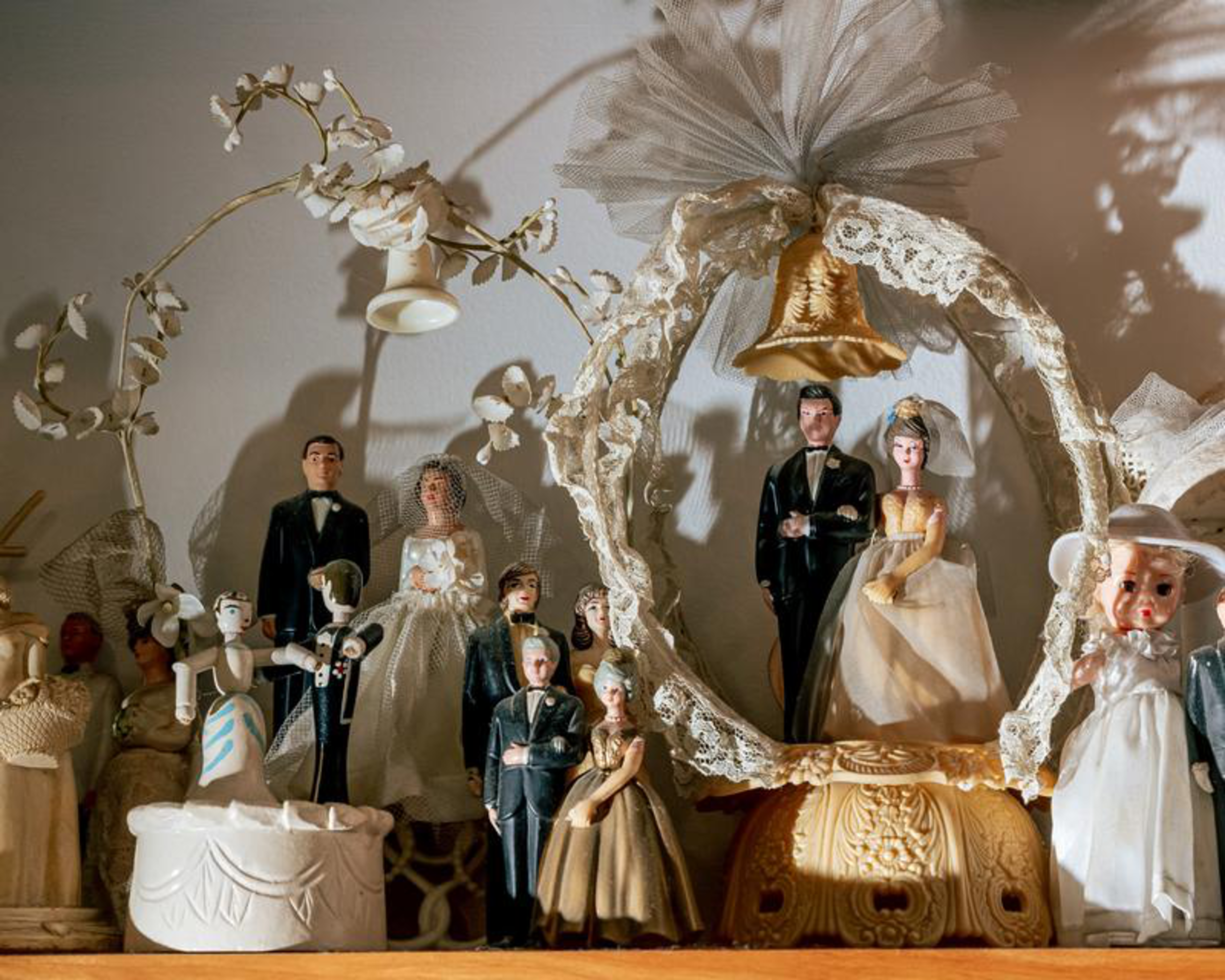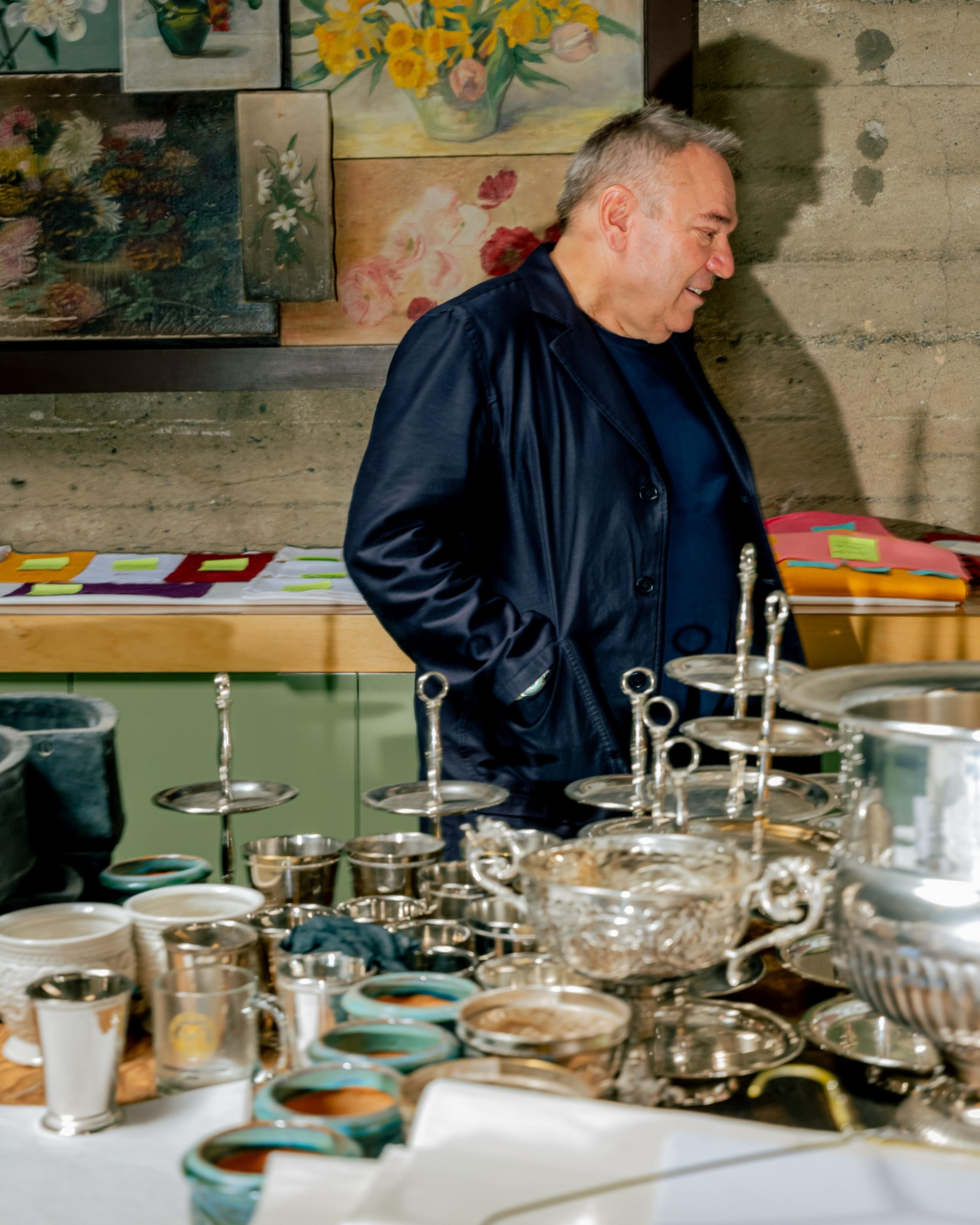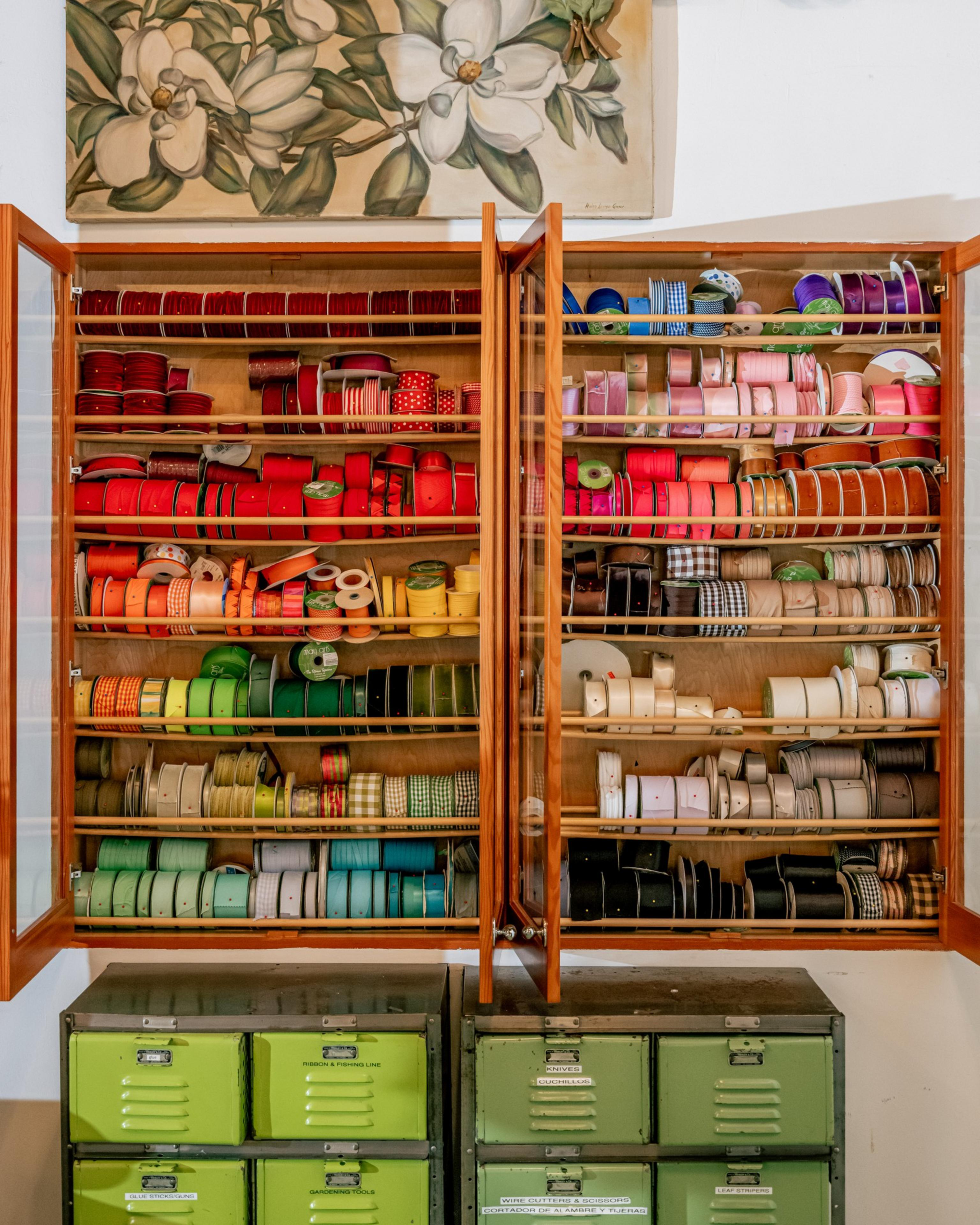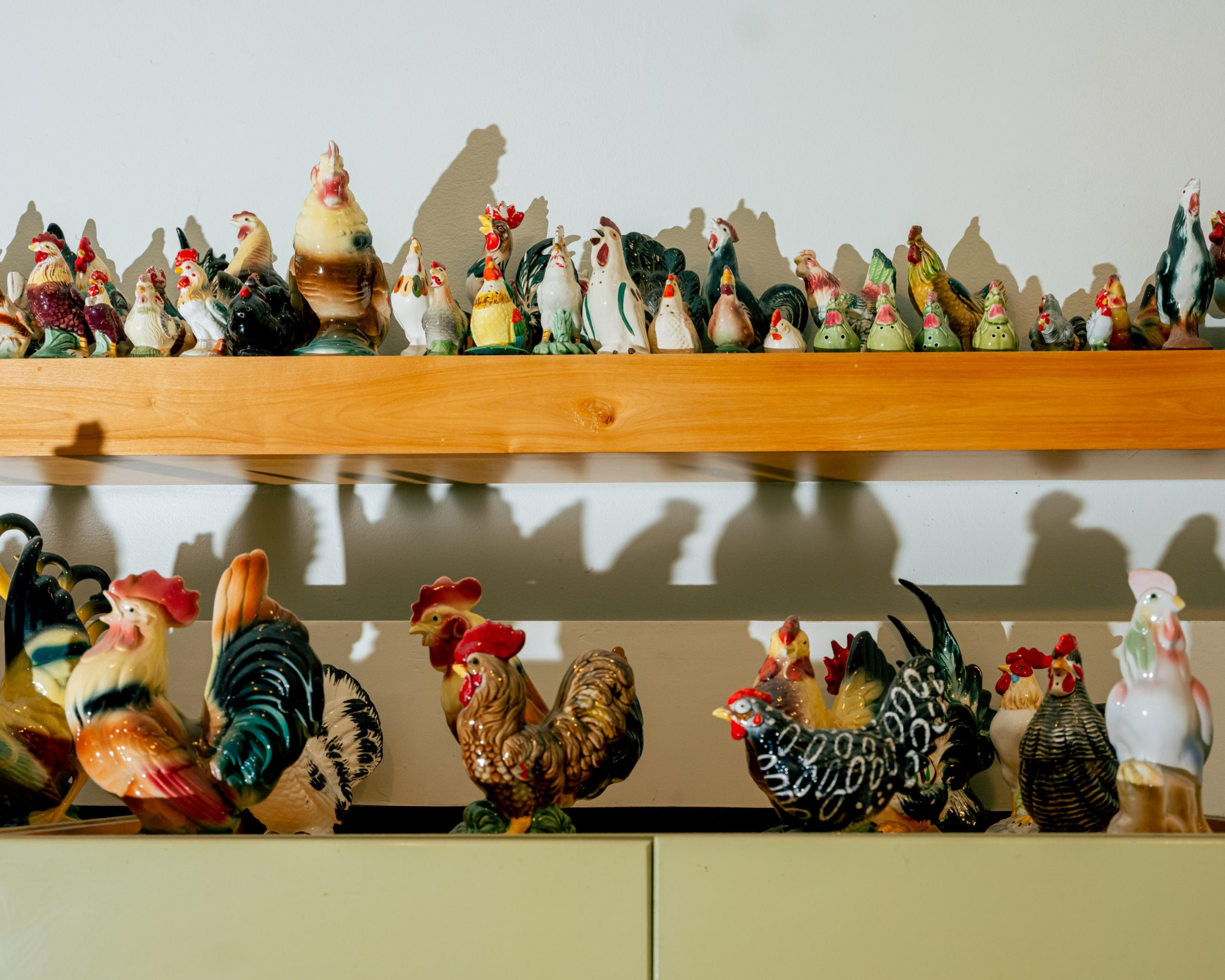Lounging in a leather-backed chair inside his artfully cluttered office in SOMA, Stanlee Gatti is mostly mum about the details of the reportedly $6 million wedding he’s just planned, which The New York Times has dubbed “the peak of quiet luxury.”
But here are the basics: The bride was Eve Jobs, daughter of Laurene Powell Jobs and her late husband, Apple cofounder Steve Jobs — the closest thing Silicon Valley has to royalty. The groom was British Olympic equestrian Harry Charles. The venue was a 12th century church in the picturesque Cotswolds of England, which drew so many spectators that the bride had to enter through a secret entrance in the back. And there were no Kardashians in attendance.
Actually, that last part Gatti can confirm.
“It just pisses me off that people think there was a Kardashian there,” he tells me. (The Times and other publications had speculated that Kourtney Kardashian was a guest because she’d posted wedding content from the Cotswolds that weekend. It just wasn’t, according to Gatti, this wedding.)
“I don’t know if they’d hang out with a Kardashian, but I doubt it,” he says of the Jobs family. “If you saw their normal crowd of people, it’s just a very different, very high-level group of people.”

This artful balance between discretion and candor is not exactly novel for Gatti: The event planner, 69, has orchestrated some of the most talked-about yet tightly-guarded soirees for Bay Area families of the last four decades, including Gavin Newsom’s Montana ranch wedding to Jennifer Siebel, Ivy Getty’s lavish nuptials at City Hall, and — I am not making this up — Kanye West’s proposal to Kim Kardashian at Oracle Park.
In 1998, San Francisco Examiner columnist Rob Morse deemed Gatti one of the three most powerful people in San Francisco — a title that, if this summer’s wedding festivities are any indication, he still undoubtedly deserves nearly 30 years later.
So how, exactly, does a kid from a coal-mining town in New Mexico become the go-to party planner for California royalty, and maintain that position for decades on end?
“I could come up with all modest sorts of things to say about why this happened,” Gatti tells me, at the start of our multi-hour interview last month.
But where would be the fun in that?

When I walk into Gatti’s workshop-slash-office-slash-storage-space in SOMA six weeks after Jobs’ wedding, it is thrumming with energy. It’s days before the annual Opera Ball, one of San Francisco’s most venerated black-tie events, and Gatti’s eponymous company is providing some of the floral arrangements, as usual. At least a dozen people are swirling around the cavernous, garage-like lower floor, assembling hundreds of thousands of flowers into garlands, potted bouquets, and, in the center of the room, a giant replica of that iconic symbol of the theater, the comedy and tragedy masks. Oh, and they are also making the centerpieces for a wedding that weekend.
This is the thing about being one of the most in-demand designers in California: The work never really stops.
Neither, it appears, does Gatti. Greeting me warmly as he emerges from his upstairs office, he immediately launches into a two-hour, wide-ranging discussion on everything from the color of people’s auras — “When I looked at you just that very minute I saw burgundy,” he tells me — to the sweeping beauty of the silver vaults of London. (Many decades ago, Gatti told an interviewer he drank 12 shots of espresso a day; he insists he’s now down to six or seven cups.)
Gatti has known the Jobs family for decades — knows Steve’s wife, Laurene, so well that it was him she turned to when it was time to plan her husband’s funeral. But he cannot for the life of him remember how he met her. Was it through Jony Ive, the designer of the iPhone, and another of Gatti’s famous friends? “Maybe. It was so long ago. You’d think I would remember that, but I don’t,” he says. “But I’m very happy to know them, because I think they’re lovely people.”
This is a classic Gatti-ism: Maybe he doesn’t remember the details, but he knows the people were lovely. They were wonderful. They were so kind. His mother, he says, always saw the good in people; never talked about the bad — a quality that annoyed him as a child but seems to have rubbed off on him as an adult. (His mother returned the compliment in a 1998 profile of her son, telling the Chronicle: “He never meets a stranger.”)
So of course Eve, the bride, was a pleasure to work with, a real joy. Despite having access to anything her heart desired, she knew exactly what she wanted, Gatti says, “and I loved hearing her define it.” The whole family, he insists, has impeccable taste. “You know how it is, when someone tells you something, and you know they know what they’re talking about?” he asks. “It’s a great pleasure.”
Because if he’s being honest, over 40 years of event planning, Gatti has seen a real erosion in taste. Just look at that birthday party Mark Zuckerberg threw for his wife a few months ago at their estate in Palo Alto. “Someone sent that to me and said, ‘Did you do this?’” Gatti says. “I said, ‘Does that fucking look like I did it?’” (If you haven’t seen the Instagram posts from the party, which feature Zuckerberg delivering a Benson Boone lip-sync performance … don’t.)


When Gatti first started as an event planner, he says, people threw formal dinners almost every night. (“I don’t know anybody who does black-tie dinners anymore,” he says wistfully.) And there were real doyennes of society — women who ran the social scene, who threw galas and fundraisers and the most beautiful dinner parties. Women like Diana Knowles and Danielle Steel and Ann Getty, whose palatial home was the site of countless such parties, many of them styled by Gatti. (“Herb Caen used to call it the San Francisco Embassy,” he recalls of the mansion Ann shared with husband Gordon Getty. “I thought that was cool.”)
It was these women who gave Gatti his start, back when he was just a newcomer from New Mexico, the son of a coal miner who came to San Francisco to work in the flower shop at the St. Francis Hotel. It was there that he met California Culinary Academy founder Danielle Walker, philanthropist Nancy Bechtle, and two other society mavens who enlisted him to help plan the annual symphony gala. They were initially cautious of his, shall we say, colorful plans for the gala — “I said, ‘I want to do this tent in hot pink, orange, red, and moss green. And they were silent,’” he says — but the night was a resounding success. He started his events business three months later.
It was Walker who connected Gatti to Evie Haas, who asked him to plan a farewell party for the outgoing director of SFMOMA. Evie just so happened to be married to Walter Haas, who was the brother of Peter Haas, who was married to Mimi Haas, who is the mother of our current mayor, Daniel Lurie, with whom Gatti is also close, because the truth is high society is like a merry-go-round, and if you stay on long enough you’ll see the same families over and over again. (It was actually Gatti who encouraged Lurie to hire his good friend Penny Coulter as chief of protocol, he tells me after some prodding, though he insists anyone would have recommended her for the job.)
But here is the secret, according to Gatti, to his long-running success: He doesn’t just know these people. He actually likes them. They are his friends.
“With every client that I accepted the job for — and for lots I didn’t accept the job — all have become friends,” he says. “Some are longer-lasting than others, but yes, they were friends.”
Here Gatti lists off just a few of those wealthy friends: Penny and Jim Coulter, of course; Charlotte Shultz, the former chief of protocol and wife of ex-Secretary of State George Shultz; Ann Getty; Gap heir Bob Fisher and his wife, Randi — actually, “all the Fishers are really close friends,” he amends.
“And these are real friends,” he adds. “Some people say, ‘All your friends are rich.’ And I say, ‘No, they’re not all rich … but the people who come to me are the people who can afford it.”

This may be because Gatti is physically incapable of not being friendly. At his office, when I mention that I’m interested in buying a Vespa scooter, he offers to go with me to the dealership to test one out. He asks after the health of The Standard’s CEO, who was recently in a bike accident, and who of course has had Gatti to his house before. “Listen, I’m friends with the guy I work with at the men’s department at Neiman’s,” he says. “I’m friends with the people I see a lot and I work with, because they’re people.”
In his office, Gatti shows off the multitude of trinkets he’s collected from clients — from friends — over the last 40 years. There’s an entire wall of fortune-cookie fortunes, a collection of crowns, and a large, green, plastic sign reading, simply, “Centerpiece.” (These were the actual centerpieces at an SFMOMA gala one year, Gatti says; an inside joke between him and gala chair Helen Schwab, wife of Charles, about her disdain for floral focal points.) There are also dozens of small leather datebooks in a shelf on a corner — one for every year Gatti’s been in business. “Danielle Walker gave me that book when I first started my business, and I’ve kept them ever since,” he says.
Downstairs, we pass one flower arrangement in a large gold pot that I assume is also intended for the Opera Ball, but Gatti corrects me. That arrangement is for the grave of a family member of a client, whose name he will not allow me to print, but who is from a prominent San Francisco family. On behalf of the mother, he has been delivering the flowers to the grave site once a week, every week, for the last 27 years. “You think about what that has to be like for somebody — for a mother,” he says. “I can’t imagine anything worse.”
And maybe this is the secret to Gatti’s enduring latticework of connections: not his easy conversationalism, his boyish charm, or the fact that when he was starting out, as he puts it, “I was young, and I was skinny and good looking, and people were always wanting to be with me.” But the fact that, by virtue of his profession, he is there for the most intimate moments of people’s lives — the joyous ones, like weddings, and the indescribably painful ones, like the death of a husband or a son. And that when you get down to it, across time and money and class and fame, in these moments, we are all alike — all looking for the same things.
“Whenever I’ve met famous people — whether it’s presidents or famous movie stars or famous singers or all those people — I’ve never gotten nervous,” he tells me, in the same breath he talks about being backstage at the Jobs wedding, schmoozing with Elton John.
He runs through a list of famous people he’s met: Queen Elizabeth, Charles and Camilla, Joni Mitchell. Was he nervous to meet any of them? Not that he can think of. “There’s no reason to get nervous, because at this point you realize that everybody is kind of the same,” he says. “They may be more famous, their names may be in lights and be in newspapers all the time — but yeah, basically, they’re the same.”
Except of course, there’s no one quite the same as Stanlee Gatti.
